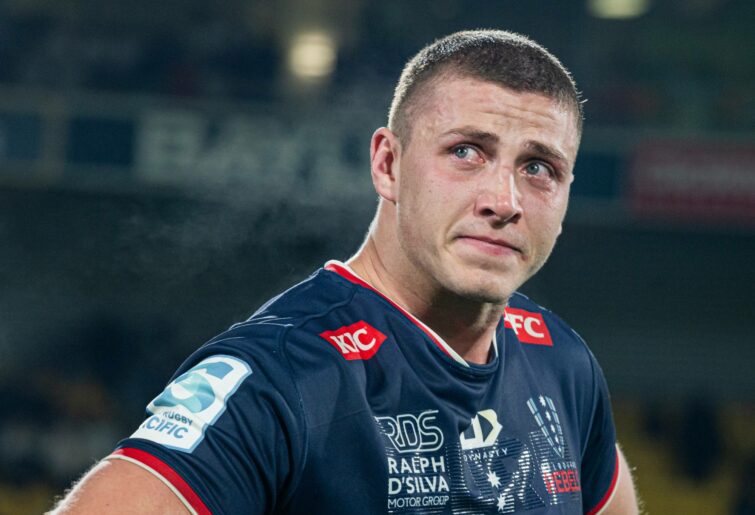Learning from the Rebels’ mistakes: How to grow the game beyond Australia’s traditional rugby ‘hotspots’

The Rebels are dead! Long live the Rebels!
The proverbial bell has tolled, the curtain has come down; and the Melbourne Rebels, Rugby Australia’s most recent franchise is no more. Despite the talk of rallying against the dying of the light and having nothing to lose, unfortunately, the Hurricanes didn’t read the Australian script and put the final nail in the coffin.
Much has been said, not necessarily all factorially correct but all with emotion and sorrow about how the Victoria-based team were set up and operated throughout its 14-year history.
Mistakes have been made on both sides of the pulpit and regardless of who is standing at the alter, chastising the faults of the other, no party comes off the field of play with a clean shirt.
Were the Rebels based in the right place in Melbourne? Should players have played in the Dewar Shield instead of travelling to play in the Shute Shield or Hospital Cup? Was too much money spent on big-name signings that didn’t or couldn’t commit to growing the game’s base? Was the marketing good enough? Have more recent developments come to late, or did they need time to establish themselves?
When the Rebels were created, Eddie Jones said “it will be bad for Wallaby rugby in the short-term, for the next 10 to 15 years”. This begs the question, at 14 years, has Rugby Australia gone too early?
The pathways were developing at a significant rate in Victoria, with a growing number of Victoria-raised players representing the Rebels in both Super Rugby Pacific and Super W, with a steady flow in gold Wallaby or Wallaroo jerseys.
If only the Rebels could find their own Forrest from the trees; that could help sustain their operation with a longer-term commitment and drive to have a fully representative team. The consortium are clearly better at PR than Rugby Australia, but that may be because they are on the side of local public benefit without the pressures of central governance to answer to.
This whole scenario has made me reflect on the structure of rugby union in Australia. As a Pom, I am not saddled with the history of the game or local structures like many people who grew up in the system; but on the face of it, if RA had to completely start again this would not be the set-up I would go with.
I have previously written about how Super W should not follow the same path as Super Rugby; and my opinion on the structure has not changed. Clearly, NSW and Queensland are rugby union’s hotspots, benefiting from the GPS school systems and rugby union’s historic foothold there, so why not capitalise on this? Have two teams in each (to start with) and call them what they are – i.e., Sydney, Brisbane, Queensland Country and NSW Country (I am not wedded to these).
Then look at the foundations in place in the ACT, Western Australia and Victoria by including the Brumbies, Force and Rebels, including their location names in the longer titles. You could then follow an NRL-type growth programme and explore longer-term developments in Northern Queensland, Gold Coast, Newcastle, Tasmania, Adelaide, Darwin, etc to create a truly national game.
Melbourne Rebels Josh Canham. (Photo by James Foy/Speed Media/Icon Sportswire via Getty Images)
This would be a long-term strategy and will require third-party funding, which should take the form of ownership. Measures can easily be put in place to ensure that each team is constructed for the benefit of rugby union in Australia and to bring through potential Wallabies. These could also include mechanisms for community outreach, education participation and grassroots growth.
For all the talk of rugby union being a posh sport and intertwined with the private schools, surely there must be individuals out there with sufficient finances and will to get proactively involved in the professional end of the sport.
Sports opinion delivered daily
To conclude, however, we will be stuck with the same system and closed ranks that the rugby union community in Australia have had to endure since the game turned professional, with a lack of long-term planning and fear of external collaboration that could see rugby union grow beyond the Sydney and Brisbane boundaries. As always, it’s the hope that kills you.
